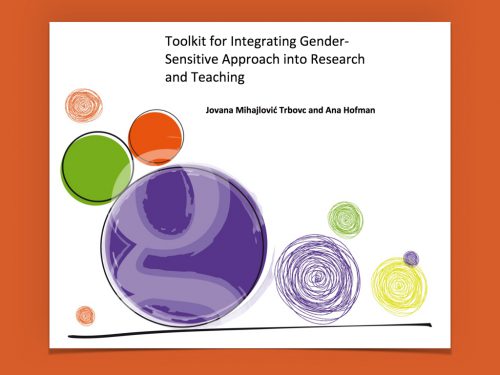At the second progress meeting for the R&I PEERS project, held in Athens on 4 April 2019, consortium members organised a workshop on “how to integrate the gender dimension into research content.” The aim of this training was to provide consortium partners with knowledge on how to integrate the gender perspective in research in a way that does not deal with the topic of “gender” as a specific research objective.
The workshop was built around the Toolkit for Integrating Gender-Sensitive Approach into Research and Teaching developed as part of the GARCIA project, and was convened by Dr. Jovana Mihajlović Trbovc, one of the Toolkit authors hailing from R&I PEERS project partner ZRC SAZU.
The aim of the Toolkit itself is to help researchers and teaching staff understand the relevance of gender to scientific inquiry by addressing questions to their past and future research/teaching trajectories. Using the Toolkit, then, the focus of the workshop was to:
- Raise awareness about the value of integrating the gender dimension in research;
- Examine how the gender perspective could lead open new opportunities research inquiry; and
- Promote more socially responsible and sensitive scientific inquiry.
Starting from the premise that there are no ready-made solutions, the workshop participants were asked to describe a project that does not have gender component so the group could practice gender-sensitive approach from scratch. In this way, the workshop was structured as a thought exercise in which the convenor facilitated discussions on how a gender-sensitive approach could be applied on concrete project questions, methodologies, and results.
Workshop participants were evenly divided between those familiar with gender studies concepts and those from disciplines where exposure to such concepts is rare. This encouraged lively debate where, through exchange of knowledge between the groups, a notable achievement was an increase in understanding around the concepts of ‘gender’ and ‘intersectionality’.

